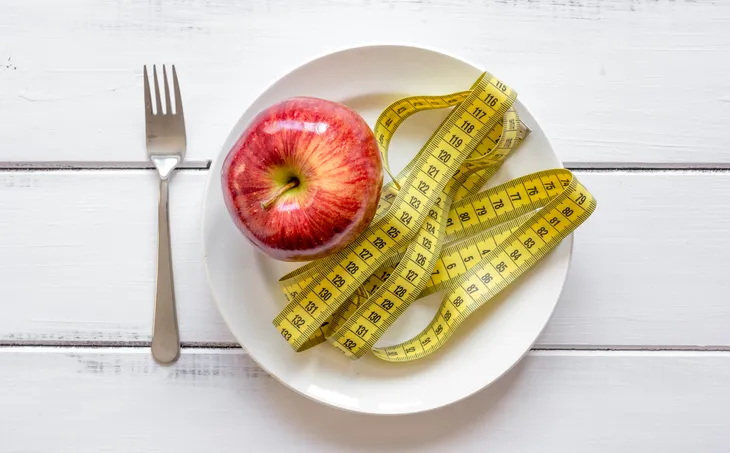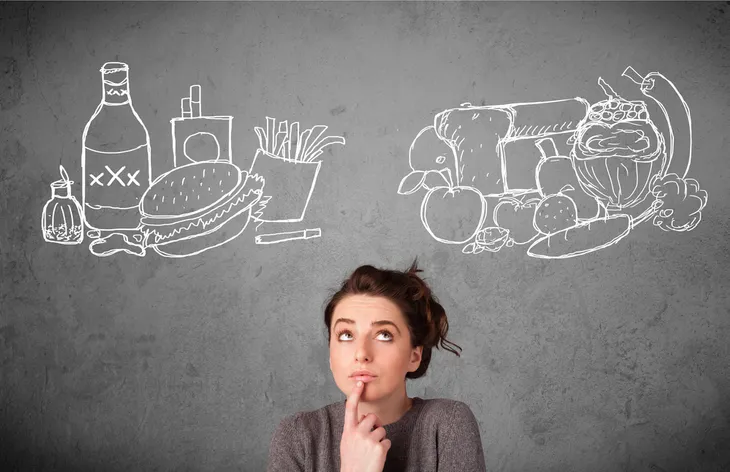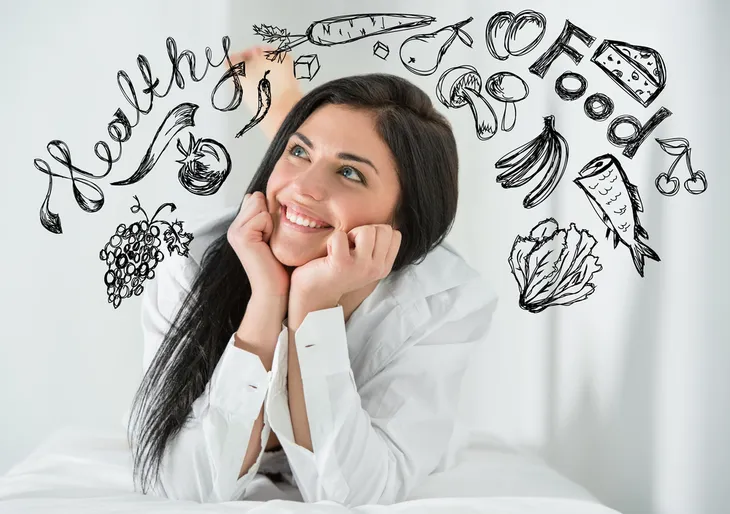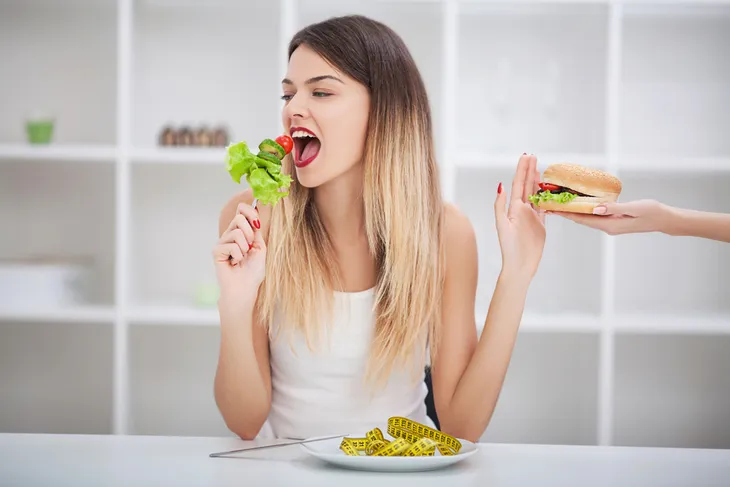While it is common knowledge that a diet high in vegetables and whole foods can have a positive effect on our mental and physical health, too much of a good thing may not be such a good thing. In fact, the obsession over “clean eating” can take a life of its’ own resulting in social isolation, mental illness, and even death.
Dr. Steven Bratman, the author of Health Food Junkies, first identified this type of eating obsession as “orthorexia nervosa”. From abstaining from wheat to joining in on the diet detox revolution, we are slowly becoming obsessed with ways of eating that may be more harmful to our health than helpful.
Below are a few signs that may suggest dietary extremism rather than balance. If there are many signs that resonate, it may be time for a move towards balanced eating (or find a helping professional that may provide the necessary support)…
Progressive Restriction
It may start with a reduction in gluten just to see if the stomach pains go away. From there it can take over one’s life through progressive removal of various foods like dairy, eggs, sugar, meat products, and the like. While it is understandable that one may look to diet to help reduce painful symptoms if conventional medicine doesn’t work, chronic restriction can rob us of important nutrients and vitamins.
The addiction of dietary restriction may also become problematic as we search out healthier ways of eating. Cutting out refined carbs may not be enough for us as we move towards cutting out all sugars, or eating only raw food. In time, we may find we are only eating whole grains and boiled chicken.
Feelings of Control and Superiority
Many people with eating disorders report they use caloric restriction or purging as a way to take back control otherwise not felt in other areas of life. Orthorexia, or health food addiction, is no different. Those that engage in extreme dieting feel a sense of control through their abstinence.
In our culture, clean eating, seems to be held in high regard and those that are able to engage in it are morally superior than those that succumb to our fast food culture. The ability to choose the “path of nutritional enlightenment” tends to give us permission to judge and ridicule other “unclean” ways of eating.
Feelings of Shame, Guilt, and Self-Loathing
So if the health food addict feels superior when adhering to extreme eating, what happens when she deviates from the plan? Like other types of disordered eating, when someone with orthorexia falls off the wagon, feelings of guilt, shame, and even self-loathing can result.
Perhaps the only thing a health food junkie can do now is detox? Perhaps it is necessary to cleanse the body of the impurities ingested? To regain a sense of control over one’s self, it may be necessary to restrict even further.
Social Isolation
If we cater to a way of eating that has eliminated many different foods, it may be difficult to accept dinner invitations without having to bring our own meals with us. Someone with orthorexia may not accept that invitation if there is a doubt that the food will be prepared in the way he or she needs it to be.
This isolation may spread to family meals as it becomes more challenging to eat what is offered. In addition, the flak from family members may be too much for those with orthorexia and the choice to eat alone becomes more attractive and safe.
Spending More Time Thinking About Food
From thinking about food and preparing menus days in advance to discussing food and surfing the net for healthy meal ideas, the health food addict will spend more and more time focused on food.
With more of our attention placed on food less attention is placed on the other joys in life. After a while, our obsession slowly closes in on us until there is nothing left but our whole grains and boiled chicken breast.
Liking the Idea of Healthy Eating More Than Healthy Eating
Many health food addicts will appreciate the idea or virtue of eating vegan, gluten and sugar free chocolate cake rather than enjoying the food itself. After a while, the joy of eating and the happiness that comes from sharing a pizza is replaced by what the food represents (and not how it tastes).
When we remove the enjoyment of eating in the name of better health, we are forgetting the other components that have the same positive health benefits (i.e. emotion and social health). Sharing a tasty dinner with friends will have the same health benefits (no matter what the meal) than eating a handful of celery sticks.
All or None.
Just like any other diet, the tendency to periodically binge on those forbidden foods becomes overwhelming as times goes on. This opens the floodgates and all nutritional hell breaks loose leading to feelings of shame, guilt, and more self-loathing.
The cycle of binging and purging (through fasting and/or a return to dietary restriction) is a clear indication of the “all or none” ways of thinking. This unhealthy relationship with food is common for those with disordered eating and is another consideration when assessing health food addiction.
Avoiding Our Favorite Social Activities
When our attention to eating healthy becomes problematic, it can slowly remove us from those activities we used to enjoy. Going to the movies may have been our favorite thing to do, but now the smell of hot buttered popcorn is too much to overcome so we avoid it.
Moreover, we may find we chose to avoid certain people because their diet isn’t the same as ours. From festivals to food courts, the world may start to close in on the health food extremist.











